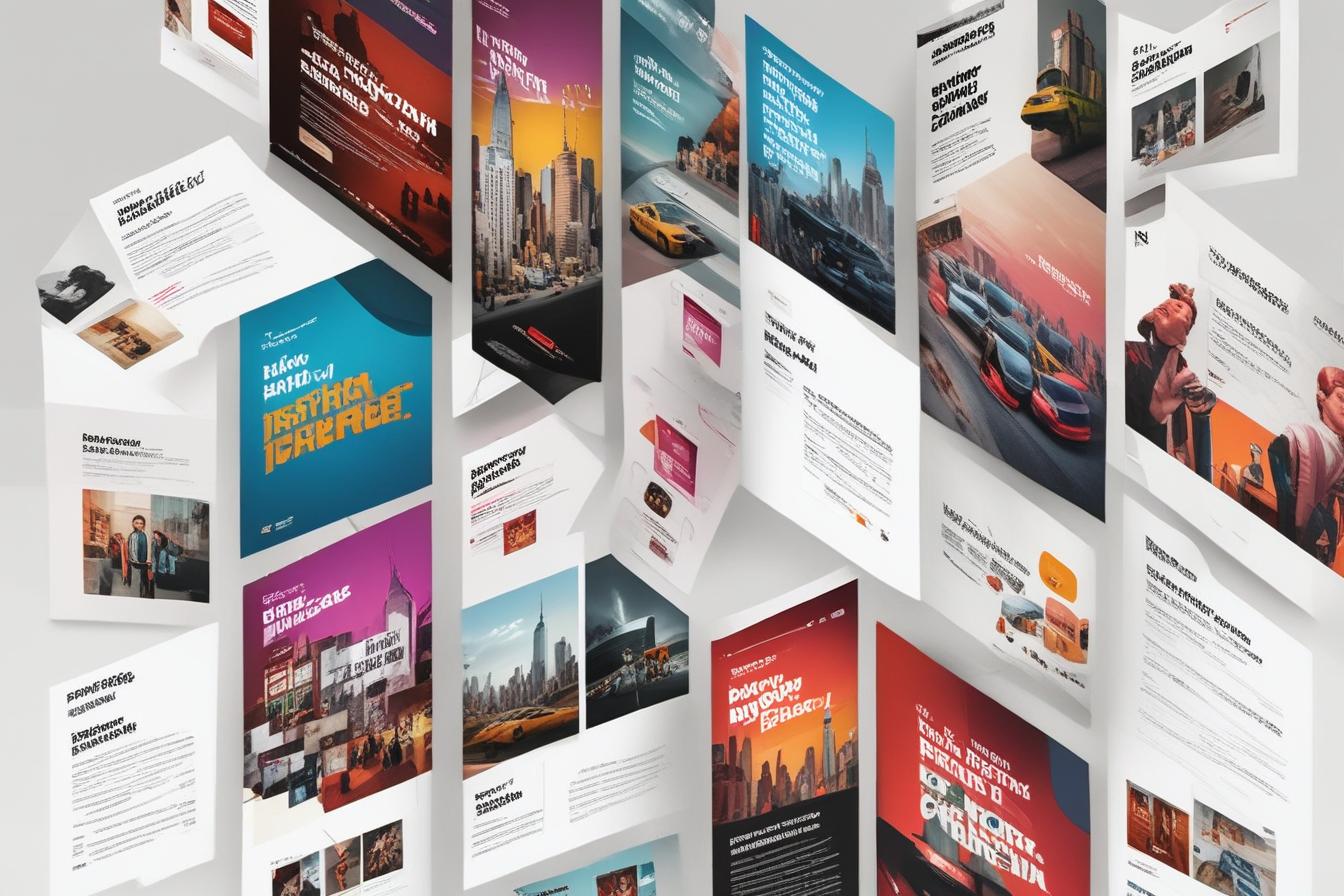What is Sponsored Content? Definitions and Examples
When it comes to mastering the rules of sponsored content, understanding the concept itself is crucial. Sponsored content, also known as native advertising or branded content, refers to promotional material that is designed to blend seamlessly into the surrounding editorial content on websites, social media platforms, or other digital channels. Unlike traditional display ads, sponsored content aims to provide valuable and engaging information while subtly promoting a brand, product, or service.
Types of Sponsored Content
Sponsored content can take various forms, including:
- Articles or blog posts
- Videos
- Infographics
- Podcasts
- Social media posts
These formats allow brands to connect with their target audience in a more organic and less intrusive way, fostering a sense of trust and credibility.
Examples of Successful Sponsored Content
One noteworthy example of sponsored content is the partnership between Netflix and The New York Times. In 2018, Netflix created a branded content series called « Streaming Culture, » featuring articles exploring the impact of streaming services on various aspects of life. These articles were seamlessly integrated into the Times’ Culture section, providing valuable insights while promoting Netflix’s brand.

ContentScale.fr, an AI-powered online tool, offers a cost-effective solution for generating SEO-optimized sponsored content at scale. With ContentScale.fr, you can create high-quality, engaging articles tailored to your brand and target audience without the need for expensive writers or agencies, saving you time and money while keeping you ahead of the competition.
The Legal Landscape: FTC Sponsored Content Guidelines
As the popularity of sponsored content continues to rise, regulatory bodies have implemented guidelines to ensure transparency and protect consumer interests. In the United States, the Federal Trade Commission (FTC) has issued specific guidelines for sponsored content marketing, aiming to prevent deceptive or misleading advertising practices.
FTC Endorsement Guidelines
The FTC’s Endorsement Guidelines require that any sponsored content clearly discloses its promotional nature, either through clear language or visual cues. This disclosure should be conspicuous and easily identifiable, leaving no room for confusion or ambiguity.
Penalties for Non-Compliance
Failure to comply with the FTC’s guidelines can result in significant penalties for brands and publishers. These penalties may include fines, legal actions, and damage to a brand’s reputation. To ensure compliance, it’s essential to follow best practices and maintain transparency in your sponsored content marketing efforts.
ContentScale.fr’s AI-powered content generation tool can help you create sponsored content that adheres to FTC guidelines, ensuring transparency and protecting your brand’s reputation.
Transparent Sponsored Content Best Practices for SEO
While sponsored content presents an opportunity for brands to reach their target audience, it’s crucial to approach it strategically and responsibly. Failure to follow best practices can result in penalties from search engines, negatively impacting your website’s visibility and search rankings.
Disclose Sponsored Content Clearly
Search engines value transparency and penalize deceptive practices. Clearly disclose sponsored content using prominent labels such as « Sponsored, » « Paid Content, » or « Promoted. » This disclosure should be visible and easily recognizable to both users and search engine crawlers.
Maintain High-Quality, Valuable Content
Sponsored content should provide genuine value to your audience. Focus on creating informative, engaging, and well-researched content that aligns with your brand’s expertise and values. Avoid thin or low-quality content solely designed to promote a product or service.

Implement a Nofollow Policy
To prevent search engine penalties and avoid potential link scheme violations, implement a « nofollow » policy for sponsored content links. This tells search engines not to pass link equity or authority to the linked pages, ensuring your website’s credibility remains intact.
ContentScale.fr’s AI-powered content generation tool can help you create high-quality, SEO-optimized sponsored content while ensuring compliance with search engine guidelines. By leveraging AI technology, you can generate engaging and valuable content at scale, without sacrificing quality or transparency.
How to Measure Sponsored Content ROI Effectively
Investing in sponsored content without a clear strategy for measuring its return on investment (ROI) can be a costly mistake. To ensure your sponsored content efforts are successful and justifiable, it’s essential to establish clear goals and track relevant metrics.
Define Measurable Goals
Before launching your sponsored content campaign, define your specific goals. These could include:
- Increasing brand awareness
- Driving website traffic
- Generating leads or sales
- Improving customer engagement
Clearly defining your goals will help you determine the appropriate metrics to track and measure success.
Track Key Performance Indicators (KPIs)
Based on your goals, identify and track relevant Key Performance Indicators (KPIs) to measure the effectiveness of your sponsored content. Some common KPIs include:
- Website traffic and bounce rate
- Engagement metrics (time on page, social shares, comments)
- Lead generation or conversion rates
- Brand sentiment and mentions
By regularly monitoring these KPIs, you can make data-driven decisions and optimize your sponsored content strategy for better ROI.

ContentScale.fr’s AI-powered content generation tool can streamline the process of creating high-quality sponsored content at scale, enabling you to maximize your ROI by reaching a larger audience more efficiently and cost-effectively.
Real-World Sponsored Content Marketing Success Stories
To understand the potential impact of sponsored content, let’s explore some real-world success stories that demonstrate the power of this marketing strategy.
GE and The Atlantic’s « Sponsored Voices »
In 2015, General Electric (GE) partnered with The Atlantic to launch a sponsored content series called « Sponsored Voices. » The series featured articles exploring various technological and scientific topics, aligning with GE’s brand positioning as a leader in innovation. This collaboration allowed GE to showcase its expertise and reach a highly engaged audience, ultimately leading to increased brand awareness and favorability.
Marriott’s Content Studio
Marriott International took a bold step by establishing its own in-house content studio, creating high-quality sponsored content across various platforms, including a travel and lifestyle magazine, social media channels, and a dedicated website. This approach allowed Marriott to control the narrative and engage with its target audience on a deeper level, fostering brand loyalty and driving bookings.

These success stories highlight the potential of sponsored content marketing when executed strategically and with a focus on providing genuine value to the audience. ContentScale.fr’s AI-powered content generation tool can help brands and businesses replicate such successes by enabling the efficient and cost-effective creation of high-quality sponsored content at scale.
Influencer Marketing: Navigating Sponsored Content Compliance
Influencer marketing has emerged as a powerful tool for brands to reach their target audience through trusted and relatable voices. However, when it comes to sponsored content created by influencers, compliance with regulations is paramount to maintain transparency and credibility.
FTC Endorsement Guidelines for Influencers
The FTC’s Endorsement Guidelines apply not only to brands but also to influencers who create sponsored content. Influencers must clearly disclose any material connections (payments or free products) when promoting or endorsing a brand’s products or services. Failure to do so can result in legal consequences for both the influencer and the brand.
Best Practices for Influencer Sponsored Content
To ensure compliance and maintain trust with your audience, consider the following best practices:
- Provide clear guidelines and training to influencers on disclosure requirements
- Encourage influencers to use conspicuous disclosure language (e.g., « #ad, » « #sponsored »)
- Monitor influencer posts for proper disclosure and take corrective action if needed
- Maintain open communication and establish clear expectations with influencers

ContentScale.fr’s AI-powered content generation tool can assist brands in creating high-quality sponsored content guidelines and training materials for influencers, ensuring compliance with regulations and maintaining transparency throughout the influencer marketing process.
Conclusion
Mastering the rules of sponsored content is essential for brands looking to leverage this powerful marketing strategy effectively and compliantly. By understanding the legal landscape, following best practices for transparency and SEO optimization, measuring ROI accurately, and navigating influencer marketing compliance, you can drive meaningful results while building trust and credibility with your audience.
ContentScale.fr’s AI-powered content generation tool offers a game-changing solution for creating high-quality, SEO-optimized sponsored content at scale. With its advanced AI capabilities, you can generate engaging and valuable content tailored to your brand and target audience, without the need for expensive writers or agencies.
Unlock the full potential of sponsored content marketing and stay ahead of the competition with ContentScale.fr. Visit ContentScale.fr today to learn more and elevate your sponsored content game.
